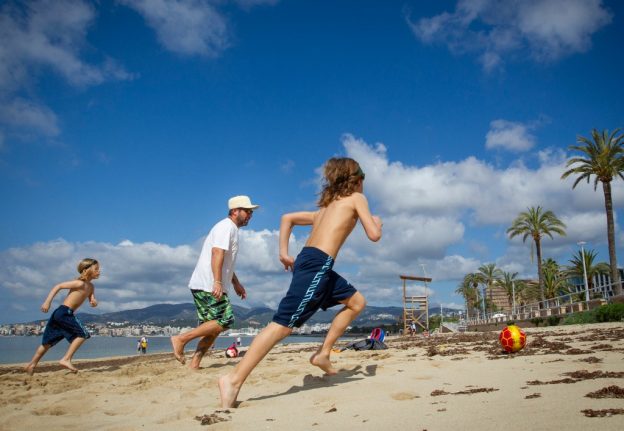So, life after lockdown at last becomes a possibility.
Adults will be allowed out on their own from next week to practice sport. Until now we have only been permitted to leave the house if we were buying food, seeking medical help or heading to work in selected industries.
Restaurants will re-open, but only for takeaways. I will be allowed to get that badly-needed haircut.
If all goes to plan and there is not a new surge in infections, the country will progress to the next stage – confusingly called phase one – in which restaurants with terraces will be allowed to re-open up to 30% of their capacity and hotels can take bookings as long as they keep communal areas shut and observe social distancing rules.
I think many people are wondering who is going head out for a meal at these rather empty, soulless restaurants? Who would want to book into a hotel? Hoteliers and restaurateurs have condemned these plans as unrealistic.
Masks will be recommended but not compulsory. Why not compulsory? Already when I head out for our allotted one hour a day with the children, hardly anyone is wearing the masks. It seems a worrying sign.
The government has said Spain should return to normal by the end of June if all goes to plan. Although working at home will still be advised, businesses can slowly re-open.
However, schools will not re-open until September. So, who will look after millions of children if the parents are back at work? Does this mean extended families -or most often grandparents here in Spain – must be called upon to help? Surely, this raises the possibility of more social contact and a greater probability of a new spate of infections.
The beaches will be opened again by June if the plan goes well. But at present, the idea is this will only be possible if people observe social distancing and local police may have to stop crowds building up.
I may be a cynic but trying to tell people to keep away from each other on Spain's crowded beaches at the height of summer seems a little like the apocryphal story of King Canute trying to stop the sea coming in; it just cannot happen.
Strangely, after nearly seven weeks in lockdown, some seem a little reluctant to leave the secure confines of their homes to risk their health in the outside world.
Despite the encouraging signs that the infection rate is falling and daily fatalities are descending, the epidemic is not over.
However, it looks like our wary world is a fixture for now.

Graham Keeley is a Spain-based freelance journalist who covered the country for The Times from 2008 to 2019. Follow him on Twitter @grahamkeeley .
READ ALSO:



 Please whitelist us to continue reading.
Please whitelist us to continue reading.
Member comments